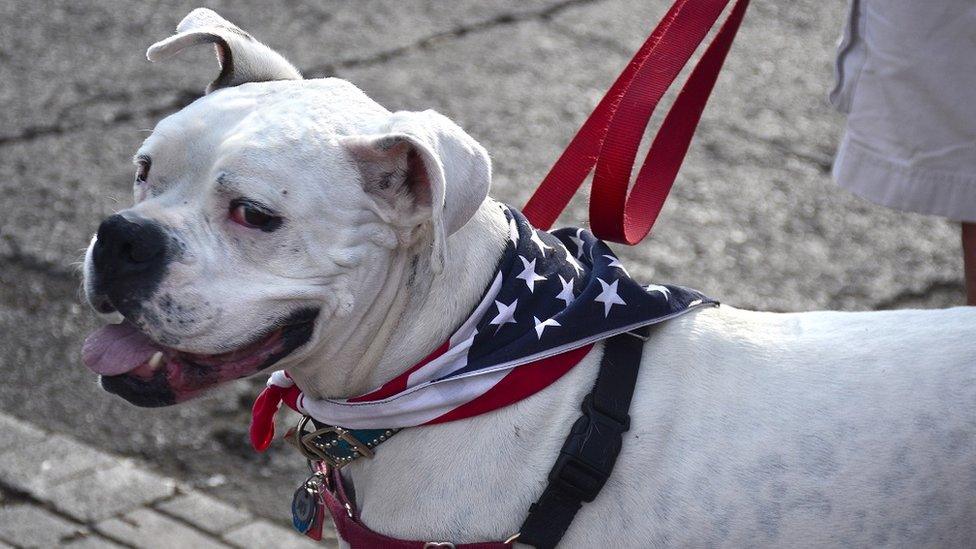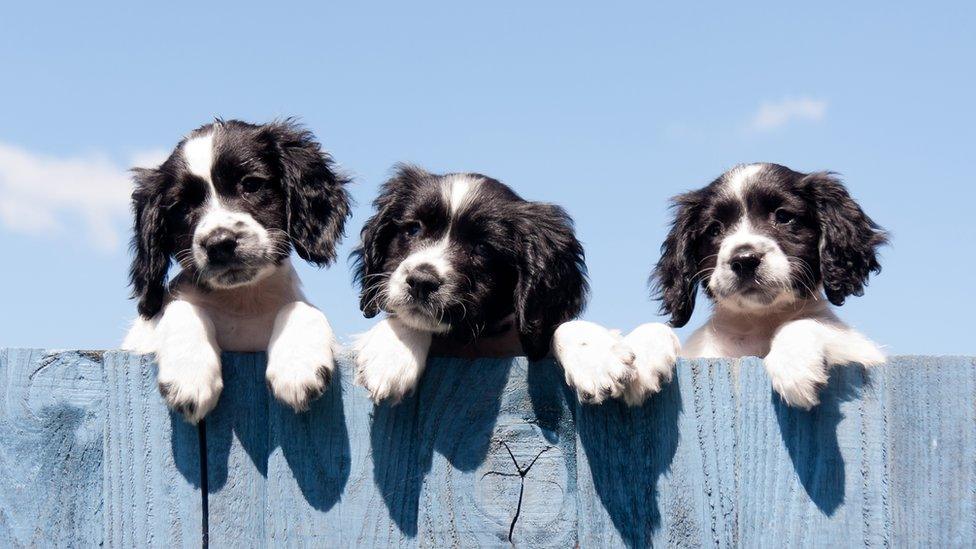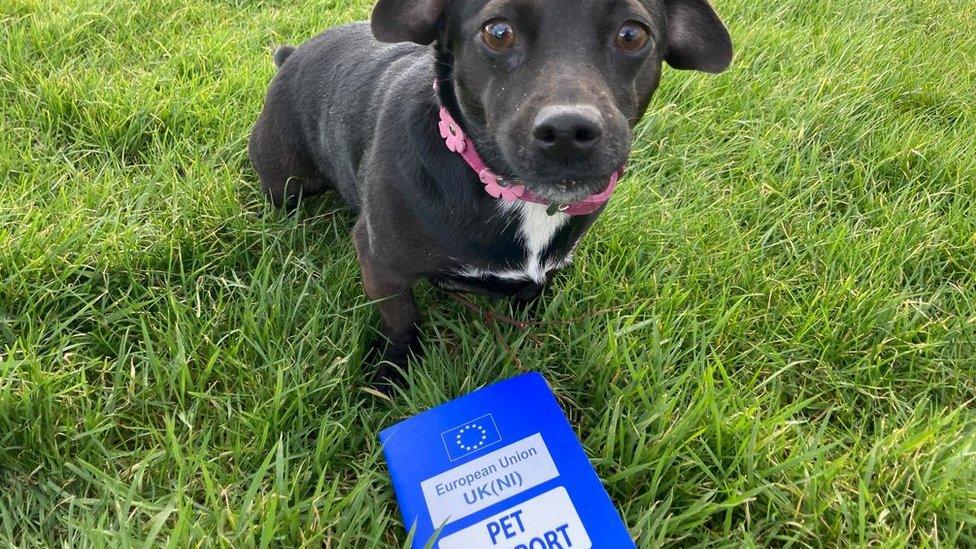US bans dog imports from more than 100 countries
- Published

The CDC has said they will review the ban periodically
The US Centers for Disease Control and Prevention (CDC) has announced a one-year ban on importing dogs from 113 countries over rabies concerns.
The ban applies to all dogs, including emotional support dogs and dogs that have been in any high-risk countries during the past six months.
The announcement comes amid a jump in dog importation, linked to the surge in dog adoptions throughout the pandemic.
Hundreds of these dogs had fraudulent rabies certificates, the CDC said.
"This action is necessary to ensure the health and safety of dogs imported into the US and to protect the public's health against the reintroduction of canine rabies virus variants," the CDC said in a statement.
The suspension applies to a wide range of countries, including Kenya, Egypt, Brazil and Russia.
The US imports about one million dogs each year. Dogs brought into the US from the countries now deemed high-risk account for about 6% of this number.
In the US, where dogs are routinely vaccinated, dog rabies was eliminated in 2007. But rabies remains widespread across the world, killing some 59,000 people annually. Rabies is almost always fatal once a person starts to experience symptoms.
The pandemic-driven jump in dog adoptions was linked to a spike in dogs brought in to the US with falsified or fraudulent rabies certificates. During 2020, the CDC found more than 450 dogs arriving in the US with fake certificates - a 52% jump compared to the previous two years - Dr Emily Pieracci of the CDC told NPR.
On "an extremely limited basis" some pet owners and other animal lovers may be granted exceptions to the ban by seeking written approval from the CDC at least 30 days before planned entry to the US, the agency said.
The one-year ban is effective from 14 July and will be reviewed periodically.
"It is so hard for the animals."
Related topics
- Published24 June 2021

- Published12 March 2021

- Published1 June 2021
